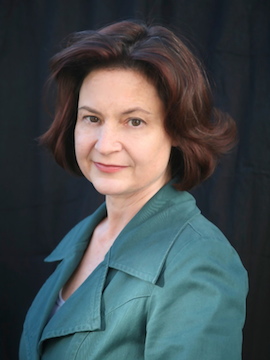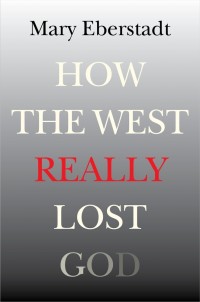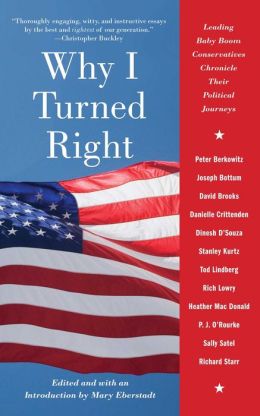How the West Really Lost God: A New Theory of Secularization
In How the West Really Lost God, author Mary Eberstadt puts forward a “new,” fairly common sense theory as to how and why Christianity has declined in the Western world. Naming it “the Family Factor,” Eberstadt lays out a case that the answer to her thesis might lay within the decline of the natural family. She sets out to show the reader that the natural family and religion are inextricable from each other and that their fortunes have always waxed and waned with one another. Although never explicitly stated, by the “natural” family, the author obviously means a family with a mother, father, and their biological children, and maybe the biological grandparents. The author lays out a case as to why the current understanding of secularization is insufficient and how her theory plugs some of the holes that existing theories on the subject cannot, and then attempts to persuade us as to why anybody should bother with this subject matter in the first place.
The “Family Factor,” as the author calls it, is the effect that the natural family seems to have on the belief and practice of religion. Eberstadt shows the reader that family and faith are “the irreversible double helix of society” and are absolutely dependent upon one another. One factor contributing to the decline is the rise of the welfare state. The welfare state, says the author, has overtaken the family and assumed many of the duties that the natural family used to be responsible for, weakening an already fragile institution. Eberstadt pointed out that families today are smaller, more scattered, blended from multiple marriages, and more likely to have members absent for long periods of time.
The question of what makes people believe in God is explored in excruciating detail. Whether it is the process of bringing a child into the world that makes people more willing to believe, or the fact that the Christian story itself is told through the lens of a family, Mary Eberstadt examines it all, including what makes people less likely to believe. She explores the detrimental effect of the broken homes of the world on the Faith, as people become discouraged with a faith that seems to condemn them or members of their family.
The whole question of this book really hinges on the author believing that we are less religious than our forefathers. Eberstadt states the obvious by reminding the reader that fewer people these days are marrying, fertility rates are falling off in developed nations, and the children being born are less and less being provided with stable, intact, two parent homes to grow up in. While she does a good job laying out and proving these self-evident points about the society in which we live, in the opinion of the reviewer, Mary Eberstadt does not prove that today’s society is less religious than that of yesteryear.
How the West Really Lost God is full of self-evident truths about the society we live in. It reads like a textbook and struggled to hold the attention of the reviewer. Her thesis, that the religious decline helps power family decline and vice versa, is not, to the reviewer’s mind, a new one, and it seems that she only uses the book as a means to confirm her own “bias,” and not challenge her own views or that of her readership. Mrs. Eberstadt’s book is by no means a light read and should only be attempted by those seriously interested in the subject of secularization.
CBC original review written by Jonathan Parker, a Research Assistant and the Vice-Chairman of the Libertarian Party of Illinois.
- The Author

Mary Eberstadt
Mary Eberstadt is an author and Senior Fellow at the Ethics and Public Policy Center. She explores issues relating to […] More about Mary Eberstadt.
- Books by the Author















